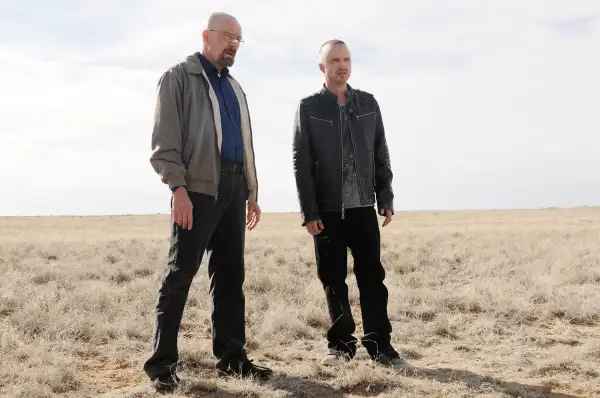Toys R Us 'Breaks Bad' with New Crystal Meth Toys

Susan Schrivjer, a mom from Fort Myers, Fla., was a fan of the award-winning AMC show Breaking Bad. “I thought it was a great show," she told a local TV station recently. "It was riveting!”
Even so, she thinks it's not such a great idea to sell action figures based on the show's notorious crystal meth dealers Walter White and Jesse Pinkman in a store where the customer base is families with young children. So last week Schrivjer launched a Change.org petition criticizing Toys R Us for selling "a Breaking Bad doll, complete with a detachable sack of cash and a bag of meth, alongside children’s toys [as] a dangerous deviation from the [company's] family friendly values."
The petition, which asks Toys R Us to stop selling the dolls, had attracted signatures from more than 2,200 supporters as of Monday morning. The "Breaking Bad"-Toys R Us protest picked up extra steam after Schrivjer appeared on The Today Show this weekend, making her case that "anything to do with drugs" should not be sold in a toy store. She has no problem with the figures being sold by e-retailers and shops that are less likely to be frequented by children, such as adult novelty stores. (For what it's worth, Breaking Bad figures are also sold by Barnes & Noble, Walmart, and other major retailers. Walmart even sells a pink Breaking Bad teddy bear.)
Toys R Us has released a statement clarifying that the Breaking Bad packaging "clearly notes that the items are intended for ages 15 and up" and that they're only sold "in the adult action figure area of our stores." Yet Today Show staffers found the drug dealer figures within arm's reach of G.I. Joe dolls, Super Mario Brothers figures, and other products of obvious interest to kids. Schrivjer and her supporters are of the opinion that the Breaking Bad figures shouldn't be sold anywhere in a toy store: "Its violent content and celebration of the drug trade make this collection unsuitable to be sold alongside Barbie dolls and Disney characters."
The controversy pops up at a time when sales of traditional toys have been slumping—and therefore so have stores whose bread-and-butter is selling those traditional toys. With the exception of Lego, which has been on an amazingly awesome roll and recently became the largest toy company in the world, many iconic toy brands have been struggling. Mattel sales declined during the last year's all-important fourth quarter (when winter holidays take place), and the company's latest report shows that Barbie sales continue to dip. One of the biggest reasons cited for dismal sales is that children are increasingly drawn to electronics over traditional toys.
It's understandable, then, that toy makers and toy stores have taken steps to sell more of what kids want today (video game and electronics sections at these stores have exploded), and also to try to expand their customer bases by manufacturing, marketing, and selling products that are for "more mature" folks. Hence, the September decision by Toys R Us to enter a global partnership with Claire's, a jewelry and accessory brand favored by tween and teen girls—a demographic that hasn't had much interest in shopping at Toys R Us of late. By the end of 2014, Claire's shops will be set up within a dozen U.S. Toys R Us locations, and more are expected down the road.
The desire to woo older customers also provides some explanation for why the toy chain would be selling drug dealer dolls, as well as why it would have an "adult action figure area" to begin with.
Read next: Netflix Had a Pretty Awful Day
